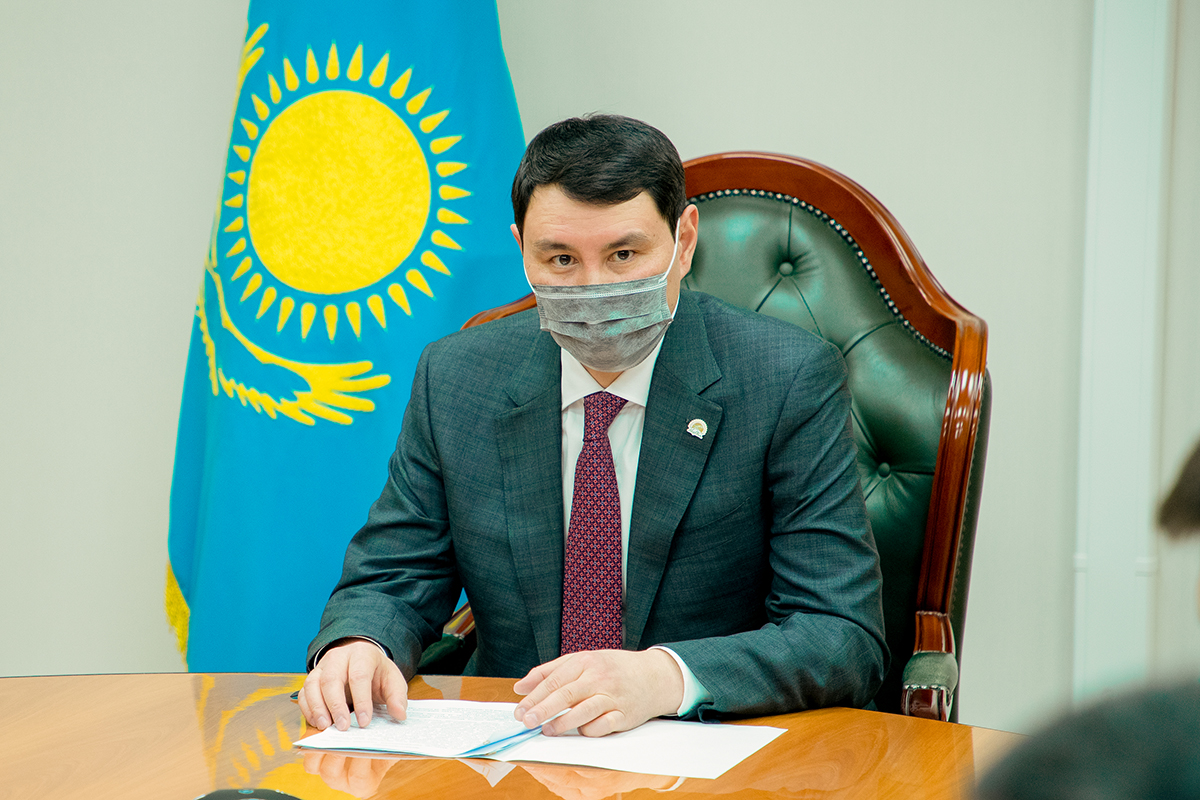15 February 2022, 11:30

At the government session chaired by the Prime Minister Alikhan Smailov, measures to implement the instructions of the Head of State given at the recent extended government session were discussed. Minister of Finance Yerulan Zhamaubayev reported on the measures aimed at fulfilling the instructions of the President.
Regarding customs administration. In order to restore order in the customs area, operational and systemic measures are being taken, including the digitalization of customs administration. In terms of operational measures, the centralization of customs functions for control and issuance of declarations was carried out.
Verifications are being completed for 9 authorized economic operators and other major importers. Work is underway to improve the electronic queue system at the border. Qualification requirements for authorized economic operators will be strengthened by law.
“As part of systemic measures, work is underway to improve the information systems ASTANA-1 and E-window. A subject-oriented approach and data mining are being introduced into the risk management system. The system of traceability of goods based on electronic invoices is being further developed. This will allow tax control throughout the entire sales chain from import to the end consumer,” said Yerulan Zhamaubayev.
In addition, a set of measures is being taken to reduce discrepancies in customs statistics with China, as well as to modernize the customs infrastructure. In general, this year, due to the strengthening of customs administration, it is planned to additionally provide about 150 billion tenge to the republican budget.
As for the analysis of the socio-economic effect of public spending, according to the head of the Ministry of Finance, an interdepartmental working group is being created with the participation of interested state bodies and organizations. The Roadmap will be adopted. It will provide for the expansion of tools for assessing budget expenditures, the introduction of a mechanism for reviewing expenditures and the determination of priorities for the allocation of funds.
“Currently, a monitoring system for allocated state support measures has already been launched, covering 80 measures and 9 state and industry programs. The system allows you to determine the financial and economic efficiency of the subject before and after receiving state support measures, to compare expenses with income in the form of tax revenues, as well as to analyze the creation of jobs and increase the wage fund. The results of the work on the creation of this system will be taken into account when developing a new methodology,” Zhamaubayev emphasized.
Regarding proposals for the return of funds illegally exported abroad and assets acquired there, it was noted that today a legal framework has been prepared for international cooperation in terms of information exchange for the purposes of tax administration. In particular, as part of a multilateral agreement on the automatic exchange of information on financial accounts, information has been received from 62 jurisdictions, covering the period starting from 2019.
Taking into account the instructions of the Head of State, a working group was created with the participation of the heads of all interested state bodies. Specific proposals will be developed in terms of returning capital to the country from abroad and strengthening measures aimed at countering the outflow of funds from the country, including to offshore jurisdictions.
In addition, legislative amendments have been developed regarding the taxation of dividends, restrictions on the deduction for intangible services and controlled foreign companies. A law on transfer pricing issues will also be adopted, taking into account the best practices of the OECD countries. Specific proposals in this direction will be submitted to the Head of State within two months.
On government purchases. The public procurement process has been completely transferred to electronic format. The whole process is transparent and available to everyone. As a result of the measures taken in recent years, the share of direct purchases from a single source has decreased from 64% to 39%.
“Since this year, 6 more grounds for direct purchases have been excluded from the law. In order to improve the procurement process, a new method has been introduced in the form of an electronic store, as well as framework agreements and a competition are being introduced using a rating-point system,” Minister of Finance Yerulan Zhamaubayev informed.
An indicator of financial stability was introduced, which limited the participation of one-day firms in purchases. An electronic depository has been introduced to automatically calculate the experience of suppliers in the construction industry. In order to increase public control over customers and the quality of procurement, it is proposed to maintain and publish in the public domain the efficiency rating of government agencies.
Procurement of subjects of the quasi-public sector. Since this year, a law has been put into effect that regulates the procurement of national companies, including the Samruk-Kazyna Fund. For national companies, 12 grounds for procurement from a single source have been reduced, and for the Fund — 10. Procurement of national companies is fully automated and as close as possible to public procurement approaches. The whole process is transparent and available to everyone. Measures to reduce procurement from a single source in the procurement of national companies and the Fund will continue.
“Work is underway to revise the Fund's procurement procedure. Here it is proposed to exclude purchases within the framework of intercompany cooperation. Joint work with the Foundation continues,” said Yerulan Zhamaubayev in conclusion.
Stay updated about the events of the Prime Minister and the Government of Kazakhstan - subscribe to the official Telegram channel
Subscribe